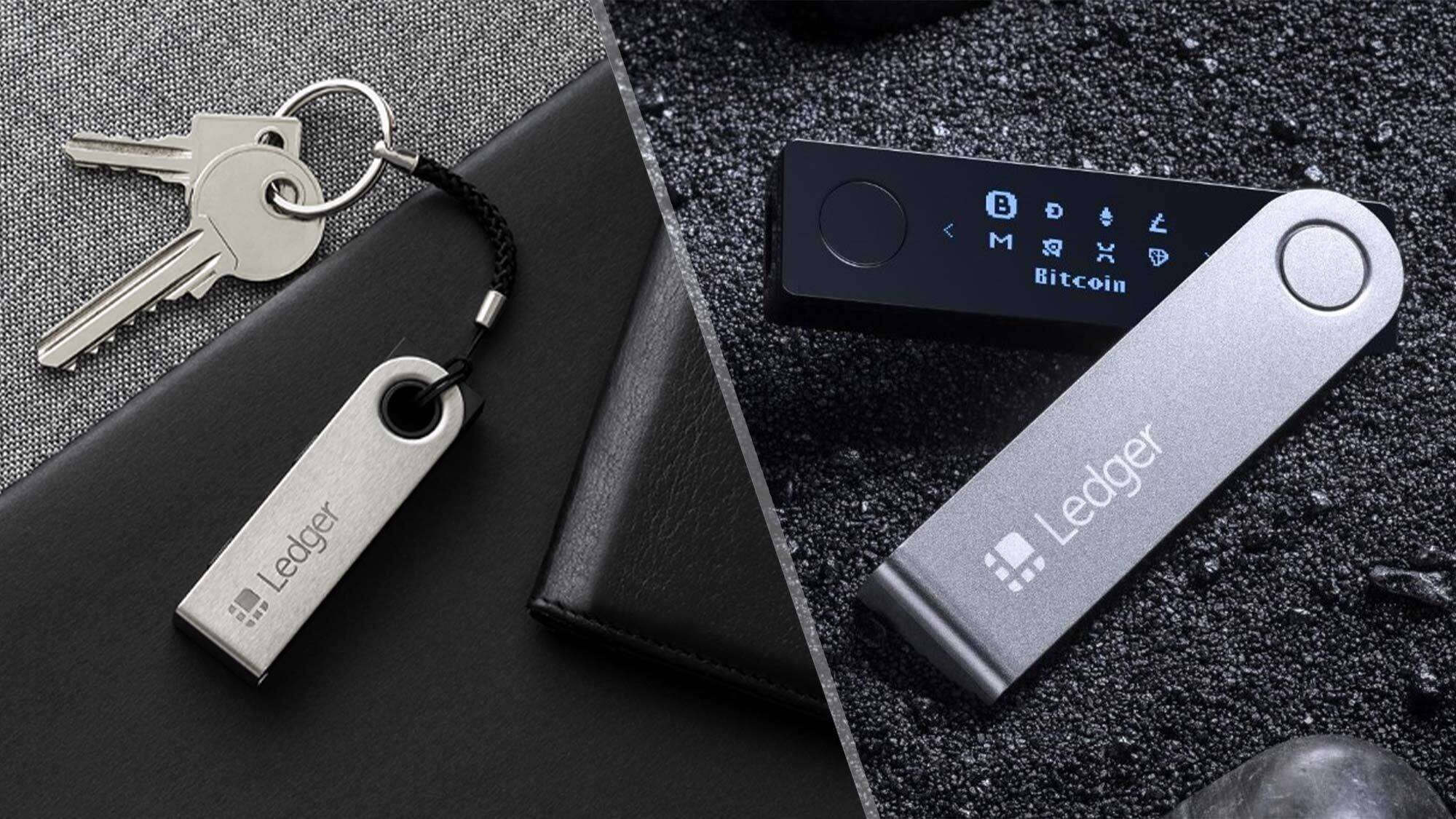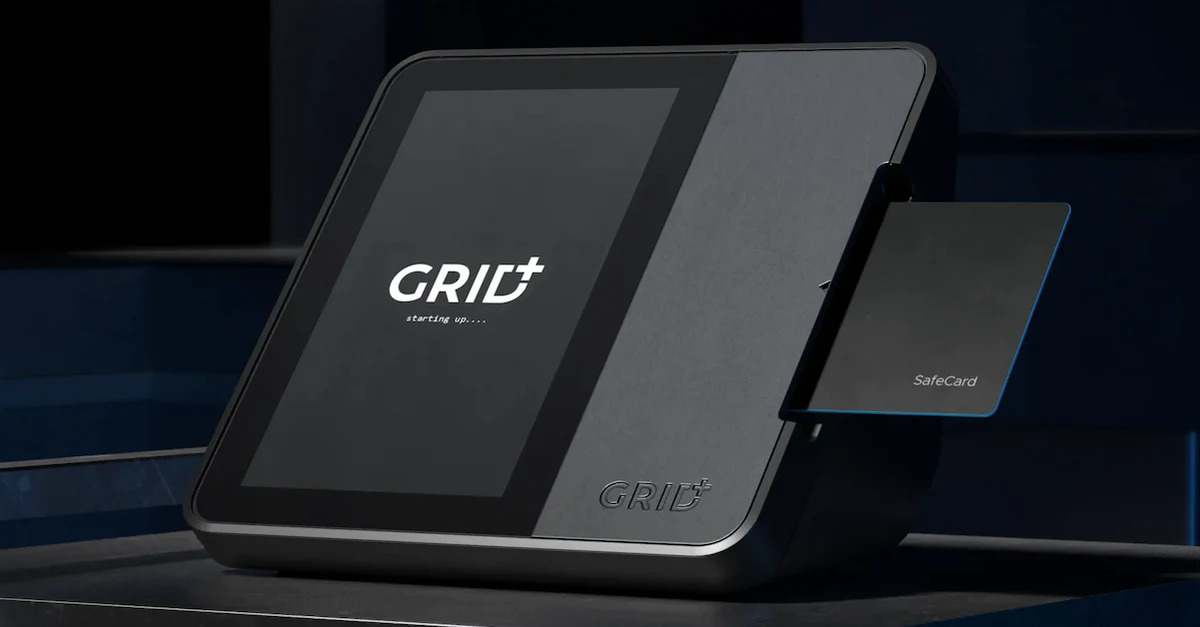Introduction
Welcome to the world of cryptocurrency, where digital assets are revolutionizing the way we transact and store value. As the popularity of cryptocurrencies continues to rise, so does the need for secure and reliable storage solutions. One such solution is a ledger crypto, which provides a safe and efficient way to manage your digital assets.
In this article, we will explore what a ledger crypto is, how it works, and the benefits of using one. We will also discuss the common types of ledger cryptos, popular platforms available, security measures, and important considerations to keep in mind when using a ledger crypto.
Cryptocurrencies, such as Bitcoin and Ethereum, are decentralized digital currencies that do not rely on traditional banking systems. Instead, they utilize blockchain technology, a distributed ledger system that records every transaction across a network of computers. While this technology offers transparency and security, it also poses challenges when it comes to storage.
A ledger crypto, also known as a cryptocurrency wallet, is a digital tool that allows users to securely store, manage, and transact with their digital assets. It serves as a bridge between the user and the blockchain, enabling them to send and receive cryptocurrencies, view their transaction history, and manage their private keys.
Unlike traditional wallets, which hold physical cash and cards, a ledger crypto stores cryptographic keys that are used to access and transfer cryptocurrencies. These keys are stored securely offline on a device, such as a hardware wallet or a software application, to protect them from unauthorized access or potential hacking attempts.
The primary function of a ledger crypto is to ensure the security of your digital assets. It provides an extra layer of protection by encrypting your private keys and offering features like multi-factor authentication and backup options. This makes it more difficult for hackers to gain access to your cryptocurrencies.
Furthermore, a ledger crypto offers convenience and accessibility. With just a few clicks, you can send or receive cryptocurrencies from anywhere in the world. This eliminates the need for intermediaries, like banks, and reduces transaction fees and processing times.
Now that we have a basic understanding of what a ledger crypto is, let’s dive deeper into how it works and the benefits it offers. Whether you are a seasoned cryptocurrency investor or just starting your journey, understanding the fundamentals of ledger cryptos is crucial for securing and managing your digital assets.
What is a Ledger Crypto?
A ledger crypto, also referred to as a cryptocurrency wallet, is a digital tool that enables users to securely store, manage, and transact with their digital assets. It serves as a bridge between the user and the blockchain, allowing them to send and receive cryptocurrencies, view transaction history, and control their private keys.
At its core, a ledger crypto is designed to provide a secure and convenient way to store cryptocurrencies. Unlike traditional bank accounts and cash, cryptocurrencies exist only in digital form and are stored on the blockchain. However, it is important to note that cryptocurrencies themselves are not stored in a wallet; rather, the wallet holds the private keys required to access and manage them.
There are two main types of ledger cryptos: hardware wallets and software wallets. Hardware wallets are physical devices, similar to USB drives, that securely store private keys offline. Software wallets, on the other hand, are programs or mobile apps that store private keys on a computer or mobile device.
One of the key features of a ledger crypto is its ability to generate and manage private keys. Private keys are a series of complex cryptographic codes that grant access and ownership to specific cryptocurrency addresses. These keys are essential for signing transactions and ensuring the security of your digital assets.
When setting up a ledger crypto, users are typically provided with a mnemonic phrase, also known as a seed phrase or recovery phrase. This phrase consists of a sequence of words that serve as a backup for the private keys. It is essential to securely store this phrase as it can be used to recover access to the wallet in case of loss or theft of the original device.
Security is a primary concern when it comes to ledger cryptos. These wallets employ various encryption methods to protect the private keys from unauthorized access. Hardware wallets, in particular, are considered to be highly secure as they store the keys offline and are less prone to hacking attempts or malware.
Besides security, ledger cryptos offer convenience and accessibility. They allow users to easily send and receive cryptocurrencies with just a few clicks, eliminating the need for intermediaries like banks. Additionally, many ledger crypto wallets support multiple cryptocurrencies, providing users with a single interface to manage their diverse digital asset portfolios.
While ledger cryptos offer a convenient and secure way to store cryptocurrencies, it is important to understand that they do not provide absolute protection. Users must still take precautions such as regularly updating their wallets, enabling two-factor authentication, and being cautious of phishing attempts.
In summary, a ledger crypto is a digital wallet that enables users to securely store, manage, and transact with their cryptocurrencies. It acts as a gateway between the user and the blockchain, providing access to private keys and facilitating transactions. With their emphasis on security and convenience, ledger cryptos have become an essential tool for anyone navigating the world of cryptocurrencies.
How Does a Ledger Crypto Work?
A ledger crypto, also known as a cryptocurrency wallet, works by securely storing and managing the private keys necessary for accessing and transacting with cryptocurrencies. It acts as a bridge between the user and the blockchain, facilitating the sending and receiving of digital assets.
When a user creates a ledger crypto wallet, a pair of cryptographic keys is generated: a public key and a private key. The public key acts as the user’s cryptocurrency address, while the private key is a unique, secret code that grants access and control over the associated cryptocurrencies.
When a user wants to receive funds, they share their public key (cryptocurrency address) with the sender. The sender then uses this address to initiate a transaction on the blockchain, transferring the specified amount of cryptocurrencies to the receiver’s address.
On the other hand, when a user wants to send funds, they need to sign the transaction with their private key. This ensures that the transaction is authorized and that the sender is the legitimate owner of the cryptocurrencies being transferred. The transaction is then broadcasted to the network for validation and inclusion in the blockchain.
The private key is a critical component of a ledger crypto wallet’s security. It must be kept secret and secure to prevent unauthorized access to the user’s digital assets. The level of security provided by a ledger crypto depends on the type of wallet being used.
Hardware wallets are considered the most secure option. They are physical devices that store the private keys offline, away from potential threats such as hacking attempts or malware. Hardware wallets often require the user to physically confirm transactions by pressing a button on the device, providing an extra layer of security.
Software wallets, on the other hand, are programs or mobile apps that store the private keys on a computer or mobile device. They are more convenient to use but are considered less secure compared to hardware wallets. To enhance security, software wallets often offer features like password protection, encryption, and multi-factor authentication.
Regardless of the type of ledger crypto wallet used, it is crucial to back up the private keys properly. This is typically done by generating a mnemonic phrase, also known as a seed phrase or recovery phrase, during the wallet setup. The mnemonic phrase consists of a series of words that serve as a backup for the private keys. It is essential to keep this phrase in a secure location, as it can be used to recover access to the wallet in case of device loss or theft.
It’s worth noting that ledger cryptos do not store the actual cryptocurrencies. Instead, they provide a convenient and secure way to manage the private keys required to access and control the digital assets on the blockchain. By combining security measures, encryption, and cryptographic keys, ledger cryptos ensure the integrity and confidentiality of transactions, making them an essential tool for cryptocurrency users.
Benefits of Using a Ledger Crypto
Using a ledger crypto, also known as a cryptocurrency wallet, offers a range of benefits for individuals looking to store and manage their digital assets securely. Let’s explore some of the key advantages:
- Enhanced Security: One of the main benefits of using a ledger crypto is the heightened level of security it provides. Cryptocurrencies are stored on the blockchain, and a ledger crypto acts as a secure gateway to access and manage them. Private keys are encrypted and stored in a secure manner, reducing the risk of hacking and unauthorized access.
- Control over Digital Assets: With a ledger crypto, users have complete control over their digital assets. They own the private keys and can securely store them offline on hardware wallets or encrypted software wallets. This eliminates the need for third-party custodians and gives users the ability to manage and transact with their cryptocurrencies independently.
- Convenience: Ledger cryptos offer convenience by allowing users to send and receive cryptocurrencies with ease. Transactions can be initiated and confirmed quickly, reducing the need for traditional banking systems and intermediaries. This eliminates geographical boundaries and allows for seamless global transactions.
- Multi-Currency Support: Many ledger crypto wallets support a wide range of cryptocurrencies, giving users the flexibility to manage diverse digital asset portfolios in one place. This eliminates the need for multiple wallets and simplifies the management of various cryptocurrencies.
- Privacy: Ledger cryptos provide a certain level of privacy for cryptocurrency transactions. While the blockchain is transparent and transactions are visible to all, the use of cryptographic keys and addresses adds a layer of anonymity to the process. Users can control the extent of information shared during transactions, enhancing their privacy.
- Backup and Recovery: Using a ledger crypto typically involves creating a mnemonic phrase or seed phrase. This phrase serves as a backup for the private keys, allowing users to recover their wallet and digital assets in case of device loss or damage. This feature provides peace of mind and ensures that the user’s investments are protected.
- Lower Transaction Fees: By using a ledger crypto, users can often enjoy lower transaction fees compared to traditional banking systems. Cryptocurrency transactions typically involve lower fees due to the elimination of intermediaries and the use of decentralized networks.
In summary, utilizing a ledger crypto offers enhanced security, control over digital assets, convenience, multi-currency support, privacy, backup and recovery options, and lower transaction fees. Whether you are an experienced crypto investor or new to the world of digital assets, a ledger crypto can provide a secure and convenient solution for managing your cryptocurrencies.
Common Types of Ledger Cryptos
When it comes to choosing a ledger crypto, there are various options available to suit different preferences and security needs. Let’s explore some of the common types of ledger cryptos:
- Hardware Wallets: Hardware wallets are physical devices designed to store private keys offline. They provide a high level of security by isolating the private keys from internet-connected devices, reducing the risk of hacking and malware attacks. Popular hardware wallets include Ledger Nano S, Trezor, and KeepKey.
- Software Wallets: Software wallets are digital applications or programs that run on computers, mobile devices, or web browsers. They offer more convenience and accessibility compared to hardware wallets, but generally have a lower level of security. Examples of software wallets include Exodus, MyEtherWallet, and Trust Wallet.
- Mobile Wallets: Mobile wallets are software wallets specifically designed for use on mobile devices. These wallets provide a convenient way to manage cryptocurrencies on the go. They are often user-friendly and offer features such as QR code scanning for seamless transactions. Some popular mobile wallets include Jaxx Liberty, BRD, and Coinomi.
- Web Wallets: Web wallets are accessible through web browsers and allow users to manage their cryptocurrencies online. They are convenient and user-friendly, but they do come with security risks since the private keys are stored on web servers. Examples of web wallets include MetaMask, MyCrypto, and Blockchain.com.
- Paper Wallets: Paper wallets entail generating and printing physical copies of your private keys on paper. This approach provides offline storage, making them highly secure from online threats. However, caution must be exercised to keep the paper wallet physically safe and protected from damage or loss. Websites like Bitaddress and WalletGenerator offer tools to generate paper wallets.
- Desktop Wallets: Desktop wallets are software wallets that are installed and run on personal computers. They offer a balance between security and convenience, as the private keys are stored locally on a user’s device. Popular desktop wallets include Electrum, Atomic Wallet, and Exodus.
It’s important to note that each type of ledger crypto has its own advantages and disadvantages. Factors such as security, convenience, compatibility, and user experience should be considered when choosing the right wallet for your needs. Additionally, it’s recommended to verify the reputation and credibility of the wallet provider before entrusting them with your private keys and digital assets.
Choosing the right type of ledger crypto is a critical step in securing your cryptocurrencies and ensuring a seamless user experience. Whether you opt for a hardware wallet, software wallet, mobile wallet, web wallet, paper wallet, or desktop wallet, it’s essential to prioritize the security of your private keys and take necessary precautions to safeguard your digital assets.
Popular Ledger Crypto Platforms
As the demand for ledger cryptos continues to grow, several platforms have emerged that offer secure and user-friendly solutions for managing cryptocurrencies. Let’s explore some of the popular ledger crypto platforms available:
- Ledger Live: Ledger Live is a software application developed by Ledger, one of the leading hardware wallet manufacturers. It serves as a comprehensive platform for managing cryptocurrencies and is compatible with Ledger’s hardware wallets. Ledger Live supports a wide range of cryptocurrencies and offers features such as account balance tracking, transaction management, portfolio overview, and secure asset management.
- Trezor Suite: Trezor Suite is a software application provided by Trezor, another prominent hardware wallet manufacturer. It offers a user-friendly interface for managing cryptocurrencies securely. Trezor Suite integrates with Trezor hardware wallets and supports a variety of cryptocurrencies, allowing users to send, receive, and manage their digital assets with ease. The platform also provides features like account synchronization, transaction history, and portfolio performance tracking.
- MetaMask: MetaMask is a popular web wallet and browser extension that allows users to manage Ethereum-based cryptocurrencies. It provides a secure interface for accessing decentralized applications (DApps) and interacting with the Ethereum blockchain. MetaMask offers features like multiple accounts, token management, transaction confirmation, and integration with various DApps, making it a versatile platform for Ethereum enthusiasts.
- MyEtherWallet (MEW): MyEtherWallet is a web-based platform that enables users to create, access, and manage Ethereum wallets. It provides users with complete control over their private keys and offers features like token management, integration with hardware wallets, transaction history, and a decentralized exchange interface. MyEtherWallet also allows users to interact with smart contracts and participate in token sales.
- Coinomi: Coinomi is a mobile wallet that supports a wide range of cryptocurrencies. It is available for both Android and iOS devices, offering a convenient solution for managing digital assets on the go. Coinomi incorporates strong security measures, including seed phrase backup, password encryption, and multi-currency support. The wallet also features a built-in exchange for seamless cryptocurrency swaps.
- Exodus: Exodus is a popular desktop and mobile wallet that supports a diverse range of cryptocurrencies. It provides a user-friendly interface with features like portfolio management, built-in exchange services, and easy access to decentralized applications. Exodus incorporates high-level security measures, including encrypted private keys and multi-factor authentication, ensuring the protection of users’ digital assets.
When choosing a ledger crypto platform, factors such as security, compatibility, supported cryptocurrencies, user experience, and additional features should be considered. It’s essential to research and select a platform that aligns with your specific needs and preferences.
Remember, the security of your private keys and the protection of your digital assets should be a top priority when selecting a ledger crypto platform. It’s recommended to use reputable platforms from trusted providers and to take necessary precautions to secure your accounts, such as enabling two-factor authentication and keeping your software and wallet firmware up to date.
By choosing a popular and reliable ledger crypto platform, you can ensure a seamless and secure experience while managing your cryptocurrencies.
Security Measures for Ledger Cryptos
Ensuring the security of your ledger crypto, also known as a cryptocurrency wallet, is crucial when it comes to protecting your digital assets. Here are some essential security measures to consider:
- Choose a Secure Wallet: Selecting a reputable and secure wallet is the first step in safeguarding your cryptocurrencies. Look for wallets that have a solid reputation, positive user reviews, and a strong track record of security. Popular hardware wallets, such as Ledger and Trezor, are widely regarded as secure options.
- Secure Your Backup Phrase: Most ledger cryptos generate a backup phrase, also known as a seed phrase or recovery phrase, during the wallet setup. This phrase is used to restore access to your wallet in case of device loss or damage. It is crucial to securely store this phrase offline, preferably in multiple physical locations, and away from prying eyes or potential theft.
- Use Strong Passwords: Choose a strong, unique password for your ledger crypto wallet. Avoid using easily guessable passwords and opt for a combination of upper and lower case letters, numbers, and special characters. It’s also important to avoid reusing passwords across multiple platforms to minimize the risk of unauthorized access.
- Enable Two-Factor Authentication (2FA): Enable 2FA whenever possible to add an extra layer of protection to your ledger crypto wallet. This typically involves linking your wallet to a mobile app, such as Google Authenticator or Authy, which generates a time-based one-time password (TOTP) for login verification.
- Keep Software Updated: Regularly update the software and firmware of your ledger crypto wallet. Wallet providers often release security patches and updates to address potential vulnerabilities or bugs. Staying up to date with the latest versions ensures you have the latest security features and protections.
- Beware of Phishing Attempts: Be cautious of phishing attempts, which are fraudulent attempts to obtain sensitive information. Double-check the authenticity of any emails, websites, or communication asking for your wallet credentials or personal information. Always access your wallet by directly entering the website or using a bookmarked link.
- Verify Addresses: When sending or receiving cryptocurrencies, double-check the recipient’s address. Cryptocurrency transactions are irreversible, and sending funds to the wrong address could result in permanent loss. It’s always recommended to verify the complete address, or use QR codes to ensure accuracy.
- Practice Cold Storage: Consider utilizing cold storage for long-term holding of large amounts of cryptocurrencies. Cold storage refers to storing private keys offline, such as on a hardware wallet or paper wallet, reducing their exposure to potential online threats.
By implementing these security measures, you can significantly enhance the safety and protection of your ledger crypto and digital assets. Remember, maintaining good cybersecurity practices and staying vigilant is key to mitigating risks and protecting your investments in the world of cryptocurrencies.
Things to Consider Before Using a Ledger Crypto
Before using a ledger crypto, also known as a cryptocurrency wallet, there are several important factors to consider. These considerations will help ensure that you choose the right wallet and take necessary precautions to secure your digital assets. Here are some key things to think about:
- Security: The security of your ledger crypto should be a top priority. Research different wallet options and assess their security features. Look for wallets that offer strong encryption, two-factor authentication (2FA), and secure backup and recovery options.
- Supported Cryptocurrencies: Consider the cryptocurrencies you plan to store and manage using the ledger crypto. Ensure that the wallet you choose supports the specific cryptocurrencies you intend to use. Some wallets support a wide range of cryptocurrencies, while others may have limited compatibility.
- User Interface and Experience: Assess the user interface and user experience of the wallet. A user-friendly and intuitive interface can make managing your cryptocurrencies a more seamless and enjoyable process. Look for wallets that offer clear navigation, easy transaction execution, and accessible account information.
- Compatibility: Consider the compatibility of the ledger crypto with different devices and operating systems. Some wallets are designed for specific platforms, such as desktop computers, mobile devices, or web browsers. Ensure that the wallet you choose is compatible with your preferred device to ensure smooth functionality.
- Customer Support: Look for wallets that offer reliable customer support in case you encounter any issues or need assistance. Efficient and responsive customer support can provide peace of mind, especially when dealing with complex technical aspects or troubleshooting problems.
- Backup and Recovery: Consider the backup and recovery options offered by the wallet. A strong backup and recovery system, such as a mnemonic phrase or seed phrase, is crucial for regaining access to your wallet in case of loss or theft of your device. Ensure that you understand how to securely store and utilize the backup and recovery features provided.
- Community Trust and Reputation: Research the community trust and reputation of the wallet provider. Look for reviews, ratings, and feedback from other users to gain insights into the reliability and trustworthiness of the wallet. Consider wallets that have been around for a significant period and have a strong reputation in the cryptocurrency community.
- Cost: Evaluate the cost associated with using the ledger crypto. Some wallets are free to use, while others may charge fees for certain features or transactions. Consider your budget and the value you place on the wallet’s features and benefits to make an informed decision.
By carefully considering these factors, you can choose a ledger crypto that aligns with your security requirements, functionality needs, and personal preferences. Keep in mind that using a ledger crypto involves taking responsibility for the security of your private keys and digital assets. It is essential to stay informed about the latest security practices, maintain good cybersecurity habits, and always be vigilant to protect your investments in the world of cryptocurrencies.
Conclusion
As cryptocurrencies continue to reshape the financial landscape, the need for secure and reliable storage solutions becomes paramount. A ledger crypto, also known as a cryptocurrency wallet, offers a convenient and secure way to store, manage, and transact with digital assets.
In this article, we have explored the concept of ledger cryptos, their functionalities, and the various types available. We have discussed the importance of security measures, such as choosing a secure wallet, securing backup phrases, and enabling two-factor authentication. Additionally, we have highlighted the significance of considering factors like supported cryptocurrencies, user experience, compatibility, customer support, backup options, community trust, and cost when selecting a ledger crypto.
A well-chosen ledger crypto can provide several benefits, including enhanced security, control over digital assets, convenience, multi-currency support, privacy, backup and recovery options, and lower transaction fees. However, it is essential to stay vigilant and maintain good cybersecurity practices to ensure the safety of your private keys and digital assets.
Remember to keep your software and firmware updated, be cautious of phishing attempts, verify addresses before transactions, and consider utilizing cold storage for long-term holding of significant amounts of cryptocurrencies.
Whether you choose a hardware wallet, software wallet, mobile wallet, web wallet, paper wallet, or desktop wallet, the security of your private keys should be a top priority. By following best practices and taking necessary precautions, you can confidently manage your digital assets and navigate the world of cryptocurrencies.
As the cryptocurrency ecosystem evolves, it is important to stay informed about the latest developments and changes in security practices. By staying proactive and adopting a security-first mindset, you can protect your investments and make the most out of the opportunities that cryptocurrencies offer.

























